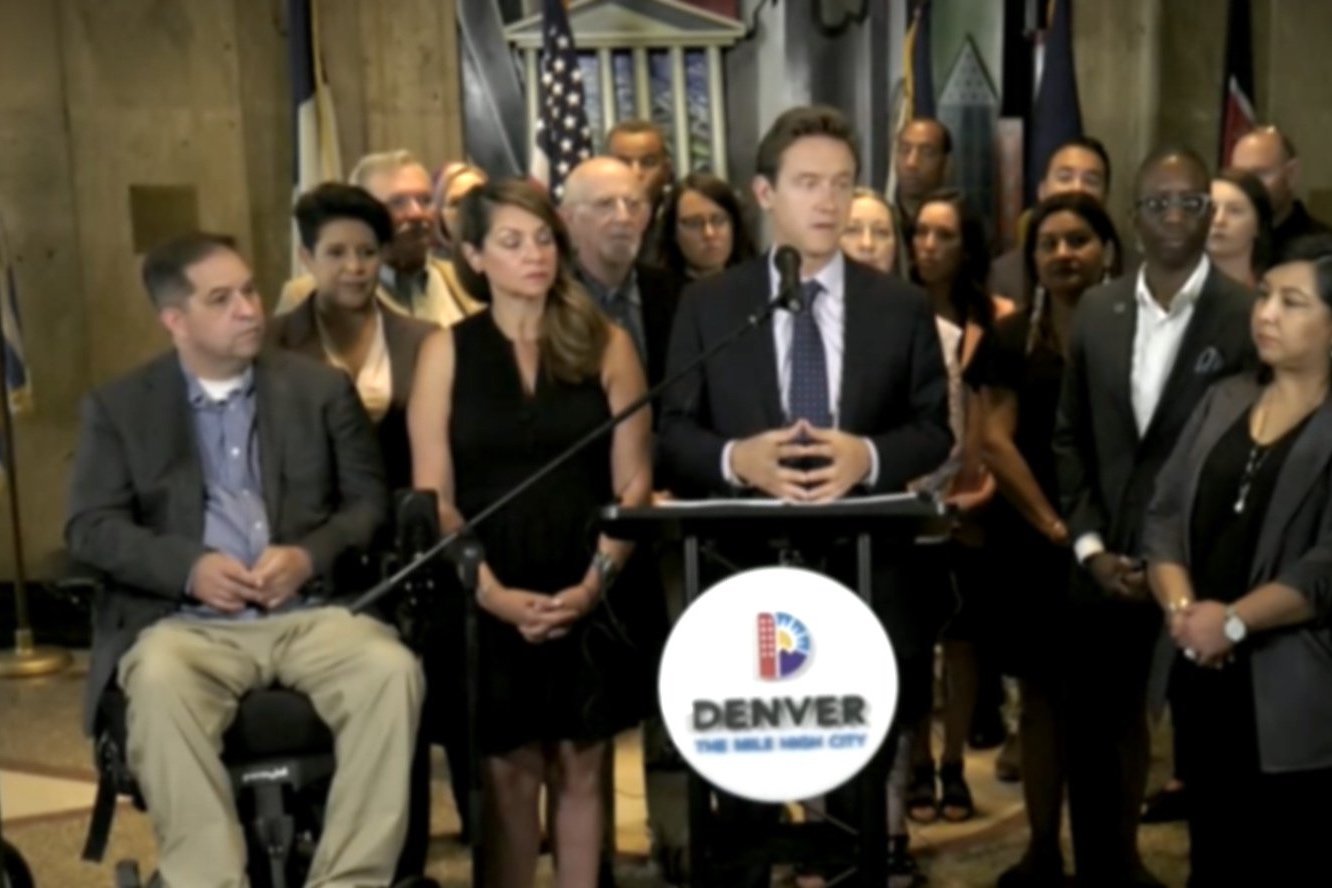Mayor Johnston declares state of emergency on homelessness on Day 1
by Robert Davis
On his first day in office, Denver Mayor Mike Johnston declared a state of emergency on homelessness with the goal of re-housing 1,000 unsheltered residents by the end of the year.
Johnston said the declaration will help the city use its resources to move people experiencing unsheltered homelessness into stable, permanent housing. It will also help Denver move “much more quickly” through regulatory processes like permitting and zoning reviews and can give Denver access to additional federal funding if needed.
Photo: Robert Davis
The declaration will last for seven days, and Denver City Council will oversee extending it as well as overseeing all related expenditures, Johnston added.
“We want to have a city where no one has to sleep on the streets,” Johnston said.
Johnston added that his administration will be touring all 78 Denver neighborhoods to discuss what resources can be brought to the table. That includes talking with landlords and looking into converting old hotels into supportive housing. City council members will lead these discussions, Johnston said and added that he will appoint 10 individuals to his administration to make sure the city is effectively using its resources.
The city has also begun the process of identifying city-owned lots of land where it can start building micro-communities for unhoused folks, Johnston said. Micro-communities campaign made much ado about his plans to build micro-communities, which could operate similarly to the Safe Outdoor Spaces piloted by the nonprofit Colorado Village Collaborative. The Safe Outdoor Space sites include small shelters, showers, hygienic services, and wrap-around services.
Johnston said the city has already identified 197 plots of land where these micro-communities could reside. He also gave a nod to Denver’s advocacy community in his announcement, which has been advocating for a similar solution for several years.
“We hear you, we agree with you, and we’re going to put the resources of our city behind solving the problem,” Johnston said.
Johnston declared a local state of emergency at a time when local polling shows 79% of Colorado voters think homelessness is either an “extremely serious problem” or a “very serious problem,” according to the Colorado Health Foundation’s latest Pulse Poll.
Johnston’s plan also follows closely in the footsteps of Los Angeles Mayor Karen Bass, who issues a similar emergency declaration upon assuming office in December 2022. Bass’ declaration gave her the authority to “expedite contracts” to build new housing units and gave the city additional powers to acquire “rooms, property, and land” for the purpose of creating shelter, according to a press release.
As of June 22, there have been more than 1,600 units approved for construction in Los Angeles with an average approval time of just 37 days, which represents a time saving of almost six months, according to Bass’ office.
The latest homeless count in Los Angeles showed a 10% increase in the city alone, where more than 46,000 people call the streets home every night, according to the Los Angeles Homeless Service Authority.
In Denver, there are nearly 4,800 people experiencing homelessness on a given night, according to federal one-night count data. The Metro Denver Homeless Initiative also found that more than 27,000 unique individuals accessed homeless services in 2022, according to the agency’s State of Homelessness report.
“This is the most important problem that many of us this Denver has,” Johnston said. “We don’t have the final answer on what the solution will be, but we will bring together the nonprofit, business, advocacy, and religious communities to address this issue.”

